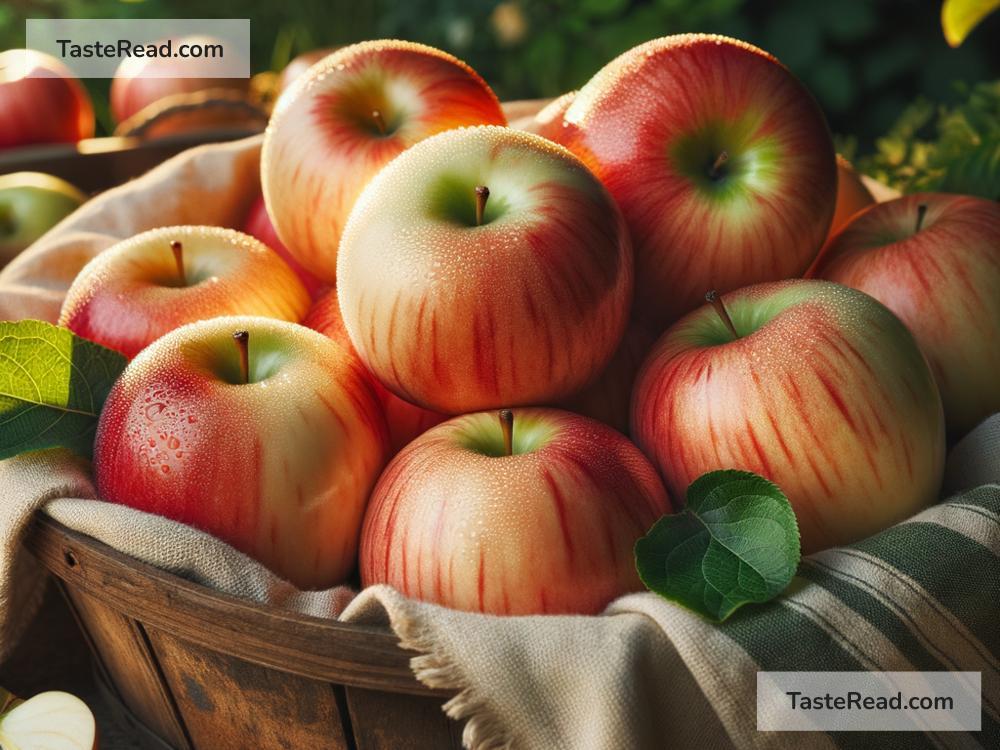The Role of Natural Wax in Preserving Apple Flavor
Apples are one of the most popular fruits in the world. Sweet, crunchy, and refreshing, they make a perfect snack or ingredient for desserts and salads. But did you know that apples have a built-in mechanism to keep their flavor intact for longer? That mechanism is none other than their natural wax coating. This blog will explore the fascinating role of natural wax in preserving the quality and taste of apples, using simple language for easy understanding.
What is Natural Wax?
If you’ve ever looked closely at a fresh apple, you may notice a slight shine on its skin. That shine is due to the natural wax that the apple produces. Natural wax is an invisible layer formed by the apple itself during its growth. It covers the surface of the fruit, acting as a protective shield.
This wax coating is completely safe and natural, unlike artificial waxes sometimes applied to fruits after they are harvested. The wax is made up of organic compounds the apple creates on its own, and it serves several important purposes for the fruit.
How Does Natural Wax Protect Apples?
Natural wax plays a vital role in protecting apples from the outside world. Here are some of the key ways it safeguards the fruit:
-
Prevents Water Loss
Apples are about 85% water, and this moisture is essential for their juicy texture and fresh flavor. The natural wax acts like a barrier, helping to lock in the apple’s water content. If there was no wax, the apple would lose moisture quickly, causing it to shrivel and lose its crunch. -
Acts as a Shield Against Microorganisms
The wax coating also protects apples from mold, bacteria, and other microorganisms that can degrade the fruit. This protective layer makes it more difficult for harmful organisms to penetrate the apple’s skin and start breaking it down. -
Protects Against Oxygen Exposure
Just like how metal rusts when exposed to air, apples can undergo a process called oxidation when they come into contact with oxygen. Oxidation can make the apple’s skin tougher and its flesh less flavorful. The natural wax reduces how much oxygen can enter the fruit, helping preserve its taste.
Why Is Flavor Preservation Important?
The flavor of apples is what makes them so enjoyable to eat. Whether you’re biting into a crisp Granny Smith or savoring a sweet Honeycrisp, the balance of sweetness, tartness, and juiciness is what makes apples so special. If the apple loses its flavor, it also loses much of its appeal as a snack.
Natural wax plays a crucial role here. By maintaining the apple’s moisture, freshness, and protection against external factors, the flavor remains intact for longer. Apples can stay delicious even after being stored for weeks in your kitchen or refrigerator.
How Does Natural Wax Handle Long-Term Storage?
In many cases, apples aren’t eaten immediately after they’re harvested. They are transported to grocery stores or stored in warehouses for extended periods of time. Without natural wax, apples would deteriorate much faster, losing not only their texture but also their taste.
Natural wax allows apples to be stored for longer without significant loss of flavor. Combined with proper storage practices—like keeping apples in cool, dark environments—this wax ensures that the fruit remains flavorful and fresh during its journey from the farm to your plate.
Should You Be Concerned About Wax When Eating Apples?
Some people might worry about the wax on apples, wondering if it’s safe to eat. The good news is that the natural wax produced by apples is completely safe and harmless. It’s not something you need to wash off, as the wax is part of the fruit’s natural composition.
However, many apples sold in supermarkets also have an additional layer of artificial wax applied after they are harvested. This artificial wax is used to enhance the fruit’s appearance and make it look shinier. While artificial waxes are usually food-grade and safe to eat, some people prefer to wash their apples thoroughly or even peel them before consuming.
How Can You Maximize Flavor Preservation at Home?
Even though natural wax does a great job of keeping apples fresh, there are things you can do to help preserve their flavor longer:
-
Store Apples in a Cool Place
Apples last longer when stored in a refrigerator or other cool environment. The cold temperature slows down the aging process and prevents moisture loss. -
Avoid Washing Apples Until Ready to Eat
Washing apples can remove some of their wax coating, so it’s best to wash them right before eating, rather than as soon as you bring them home. -
Handle Apples Gently
Bruises on an apple can break its protective surface, making it easier for air and microorganisms to enter. Handle your apples with care to avoid damaging their wax coating.
Conclusion
The natural wax coating on apples is one of nature’s ingenious creations. It serves as a protective barrier, ensuring that apples stay juicy, flavorful, and fresh for as long as possible. By preventing water loss, blocking oxygen exposure, and guarding against microorganisms, the wax keeps apples tasting their best, whether they’re freshly picked or stored away.
So, the next time you bite into a delicious apple, take a moment to appreciate this natural process happening behind the scenes! Who knew such a simple fruit could have such fascinating science behind it?


